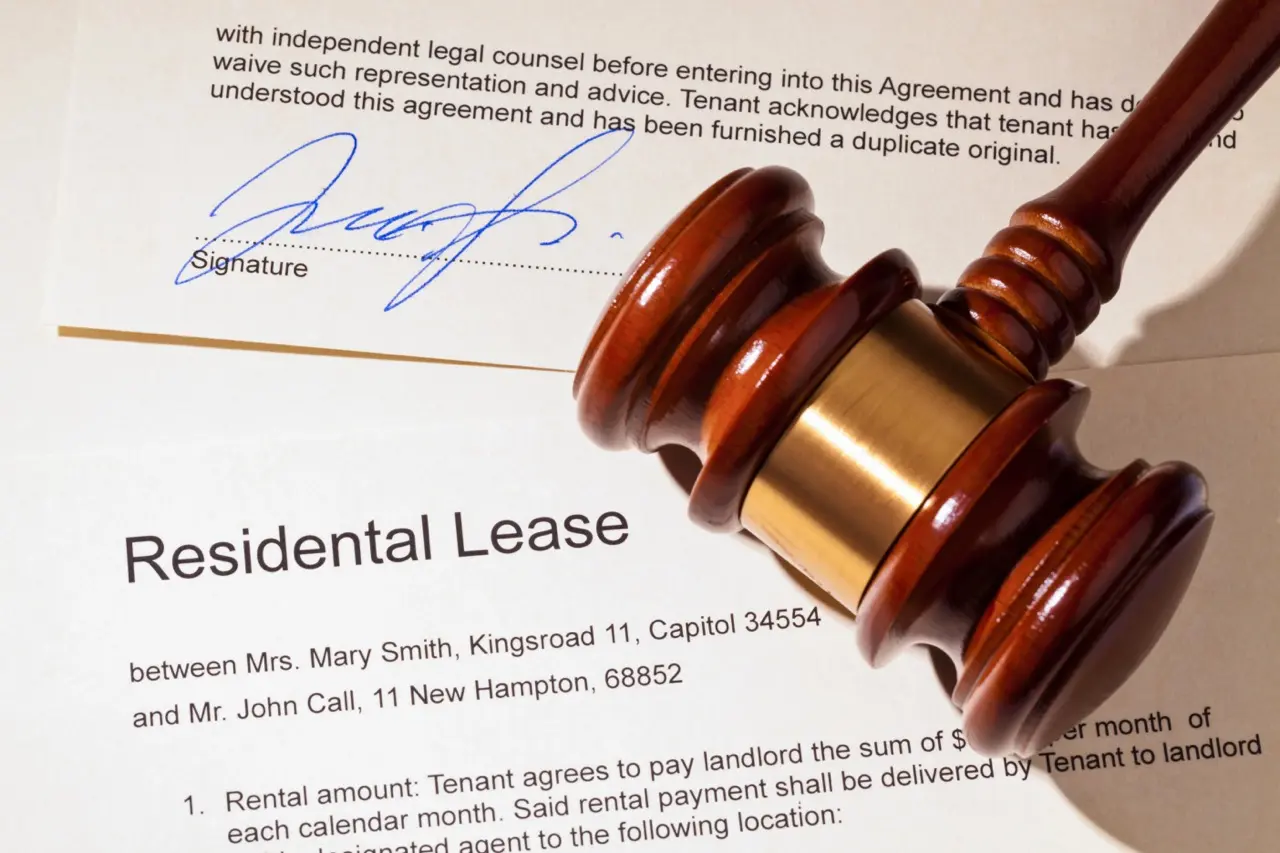A noise complaint or missed rent payment can spiral into lost income, vacancy, or lawsuits. These aren't just annoyances. They're threats to your bottom line. Acting early with clear communication, documentation, and fair pressure is how you avoid eviction and protect your rental.
Key Takeaways
- Address issues early, such as missed rent or noise, to prevent larger problems or eviction.
- Communicate clearly and document interactions to reinforce lease terms.
- Be fair but firm by setting and consistently applying clear rules, like payment plans.
- Consider mediation or housing counselors before going to court for help.
- Evictions can cost about $3,500 in court fees and lost rent; early negotiation is usually cheaper.
Spot Early Red Flags
Taking some action now is almost always cheaper than an eviction later. Even a friendly check-in, a quick call, or a text can stop minor issues from snowballing.
One late payment isn't war. But three? That's a pattern, and patterns demand action. The earlier you move, the less it costs you later. Minor issues rarely fix themselves.
Watch for common conflicts like:
- Late or missed rent payments
- Unauthorized pets or extra occupants
- Loud parties or rule-breaking in shared spaces
- Evidence of damage or needed repairs
A quick check-in ("Everything okay?") can reset expectations and stop a slide. Ignoring it? That's how you end up in court.
Pro tip: Don't wait for hard proof. When behavior shifts, such as missed calls, vague excuses, or rule-bending, it's a warning. Act early while you still have leverage.
Communicate Clearly: Talk vs. Formal Notice
Does the situation call for an informal talk or a formal notice? Choose based on severity. A phone call or email may be enough if a reliable tenant is late once. Send a written violation notice if a serious lease term is broken (like repeated non-payment or dangerous behavior).
In either case, be calm and respectful. Lay out the facts (dates, lease clauses) and listen to the tenant's side. You could say, "I noticed rent was 5 days late," or "Neighbors mentioned loud music after 11pm."
After any conversation, write a brief follow-up: email or text a summary. For example, "As we discussed, you'll pay $X by [date] and keep noise down after 10pm." This creates a record of what was agreed upon.
Pro tip: Keep your tone neutral. For example, say, "We need to fix this together," not "You're breaking our rules." Meeting in person (or via video) can defuse tension.
Document Everything: Create a Paper Trail
Unsure what to do next? Write it down. HUD-certified counselors emphasize that careful record-keeping is key to dispute resolution. Log every warning, notice, and attempt at resolution. For example:
- Save all written communication: texts, emails, and letters.
- Summarize conversations: email a short note after each call or meeting (e.g., "Following our chat, you agreed to pay $Y by Friday").
- Photograph issues: damage, hazards, or code violations.
- Keep rent records: checks, payment-app receipts, and any late fees applied.
Pro tip: Use digital tools like property-management apps or spreadsheets to organize documentation, which can reveal patterns, such as frequent late rent.
Negotiate or Enforce: Set Clear Consequences
Next, choose how flexible you want to be. Can you offer a payment plan for missed rent, or will that encourage more delays? Will a one-time late fee motivate on-time payment or push the tenant away? Laying out options in writing clarifies the path forward.
Use bullet points in writing, for example:
- Pay $500 past rent by [Date] plus a $50 fee.
- No parties after 10pm, and neighbor complaints will be a lease violation.
- Remove the pet by [Date] unless a pet fee is paid or an addendum is signed.
One approach to late rent is an installment plan to catch up and resume normal rent. A formal warning and a lease addendum (like "quiet hours after 10pm") might solve noise or nuisance issues. For unauthorized occupants, insist on removing or adding them to the lease so the unit stays legal.
Putting promises and penalties on paper ensures everyone knows the stakes. You're choosing between compromise and enforcement. Make it explicit. If you settle, require a simple signed agreement or addendum. If not, inform the tenant of your next steps (fines or formal breach).
Most importantly, be consistent. Enforce rules the same way for all tenants. This avoids claims of unfairness and is a basic tenant-protection strategy.
Consider Mediation and Professional Help
Is the conflict stuck? Instead of court, consider a mediator or counselor. Many local programs offer free or low-cost landlord-tenant mediation. A neutral third party helps both sides talk calmly and find creative solutions. Mediation is voluntary and non-binding. Nothing is lost if it fails, but it can save a lot of time and money if it succeeds.
Know your local laws. Some areas require mediation before eviction, so understanding your options protects you. The goal is a solution with the least cost. Mediation keeps costs low, whereas court fights can get expensive fast.
Pro tip: Silence isn't always a stall - sometimes, it's a strategy. When talks break down, pause. A short delay often resets the tone and gives you leverage.
Know When Eviction is the Last Resort
After all efforts, if a tenant still violates the lease, an eviction may be your only option. Follow your state's process exactly (required notice period, filing paperwork, court hearing). Skipping a step or using the wrong form can halt the eviction and cost you weeks.
If you must evict, minimize additional losses. Start preparing the unit now and scheduling repairs, advertising, and screening so it's ready right after the tenant leaves. Continue documenting every step, such as service date, court filings, etc. This ensures you follow the law and can still recoup unpaid rent or damages later.
Pro tip: Treat eviction like surgery and precision matters. One wrong form or missed deadline can reset the entire process and cost you weeks of lost rent. Double-check everything before you post that notice.
Conclusion
Resolving conflict early isn't easy, but it's cheaper, faster, and better than going to court. When you act decisively, listen closely, and enforce consistently, you turn problems into solutions.
Think of conflict resolution as a core part of your landlord toolkit. Fair treatment builds trust, and tenants who feel respected are more likely to renew, pay on time, and take care of your property. That's how you protect your rental and stay profitable long-term.









